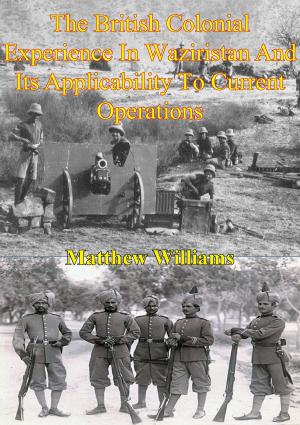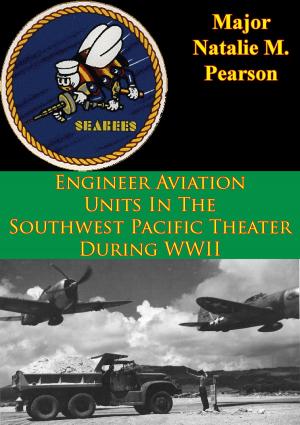No Shells, No Attack! - The Use Of Fire Support By 3 Commando Brigade Royal Marines During The 1982 Falkland Islands War
Nonfiction, History, Middle East, Persian Gulf War, Military| Author: | Lieutenant Colonel Thomas R. Hogan | ISBN: | 9781782897712 |
| Publisher: | Tannenberg Publishing | Publication: | August 15, 2014 |
| Imprint: | Tannenberg Publishing | Language: | English |
| Author: | Lieutenant Colonel Thomas R. Hogan |
| ISBN: | 9781782897712 |
| Publisher: | Tannenberg Publishing |
| Publication: | August 15, 2014 |
| Imprint: | Tannenberg Publishing |
| Language: | English |
The 1982 British campaign to recapture the Falkland Islands was a naval operation of relatively short duration. Nevertheless, many of the British lessons learned are applicable to the U.S. Army. No notice deployment, assignment as part of a naval landing force, and combat operations beyond the range of land based close air support are all reasonable missions for light divisions. This study analyzes one aspect of the British experience-the use of fire support by 3 Commando Brigade Royal Marines. Through historical review, the study examines the use of mortars, artillery, naval gunfire, and close air support to complement ground maneuver. The purpose behind the study is to highlight the effectiveness with which 3 Commando Brigade utilized fire support during an island invasion, slightly more than one year before the U.S. Army experience in Grenada. Conclusions focus on three areas. In the first area, fire support relationships, the study contends that the British marriage of maneuver and fire support is exceptionally strong and that the strength is largely attributable to the utilization of the artillery battery commander at maneuver battalion headquarters. In the second area, fire support for naval operations, the importance of Army interoperability with naval gunfire and air support is developed. In the third area, fire support effects, the study asserts that the mental effects of fire support were a major contributor to British victory.
The 1982 British campaign to recapture the Falkland Islands was a naval operation of relatively short duration. Nevertheless, many of the British lessons learned are applicable to the U.S. Army. No notice deployment, assignment as part of a naval landing force, and combat operations beyond the range of land based close air support are all reasonable missions for light divisions. This study analyzes one aspect of the British experience-the use of fire support by 3 Commando Brigade Royal Marines. Through historical review, the study examines the use of mortars, artillery, naval gunfire, and close air support to complement ground maneuver. The purpose behind the study is to highlight the effectiveness with which 3 Commando Brigade utilized fire support during an island invasion, slightly more than one year before the U.S. Army experience in Grenada. Conclusions focus on three areas. In the first area, fire support relationships, the study contends that the British marriage of maneuver and fire support is exceptionally strong and that the strength is largely attributable to the utilization of the artillery battery commander at maneuver battalion headquarters. In the second area, fire support for naval operations, the importance of Army interoperability with naval gunfire and air support is developed. In the third area, fire support effects, the study asserts that the mental effects of fire support were a major contributor to British victory.

![Cover of the book I Flew For The Führer: The Story Of A German Fighter Pilot [Illustrated Edition] by Lieutenant Colonel Thomas R. Hogan](https://www.kuoky.com/images/2015/november/300x300/9781786256478-64hF_300x.jpg)

![Cover of the book Thunderbolt!: The Extraordinary Story Of A World War II Ace [Illustrated Edition] by Lieutenant Colonel Thomas R. Hogan](https://www.kuoky.com/images/2015/november/300x300/9781786251817-P2gc_300x.jpg)







![Cover of the book First In The Air: The Eagle Squadrons Of World War II [Illustrated Edition] by Lieutenant Colonel Thomas R. Hogan](https://www.kuoky.com/images/2014/august/300x300/9781782898788-X7SX_300x.jpg)


![Cover of the book Vanguard Of Valor : Small Unit Actions In Afghanistan Vol. I [Illustrated Edition] by Lieutenant Colonel Thomas R. Hogan](https://www.kuoky.com/images/2014/august/300x300/9781782894957-aWmw_300x.jpg)
